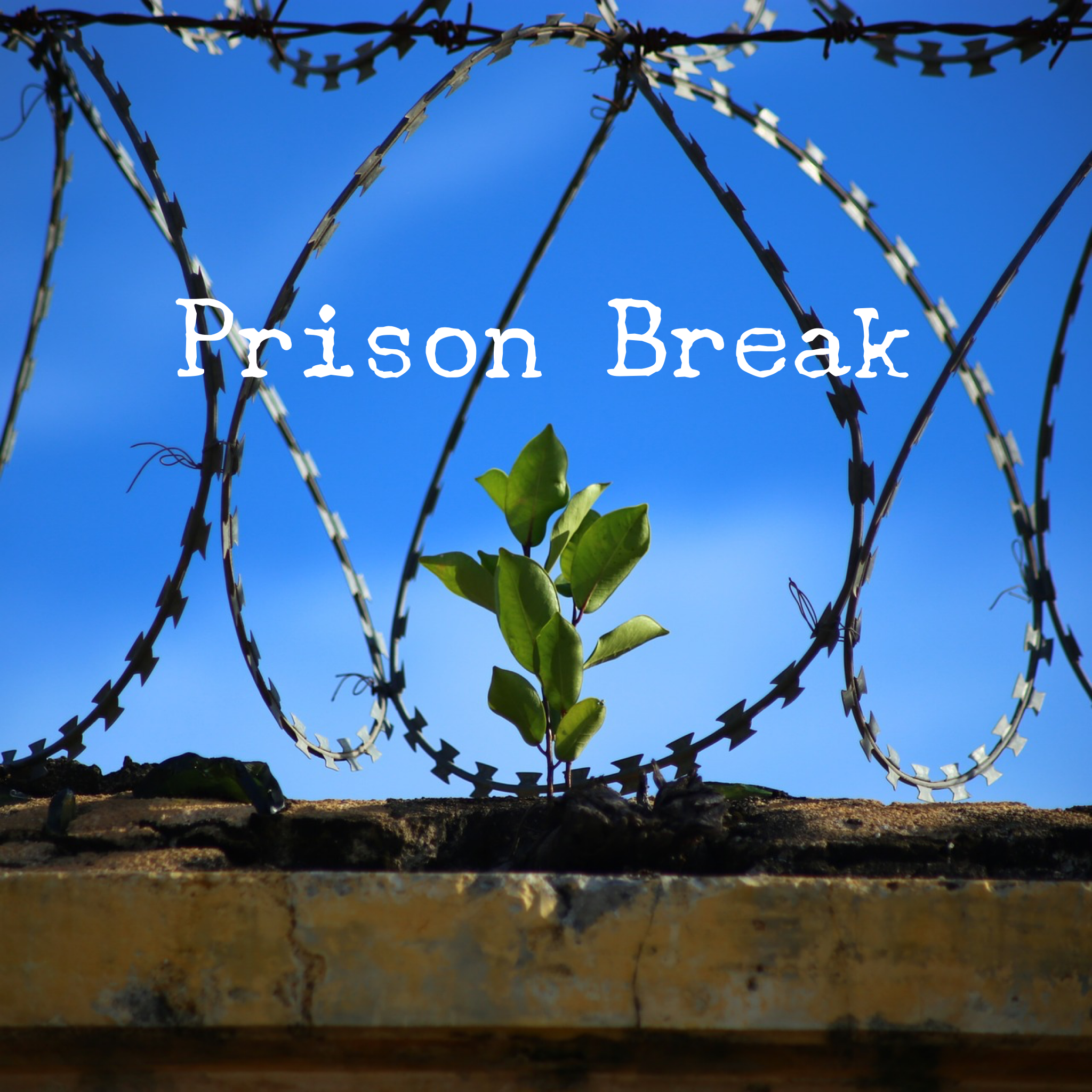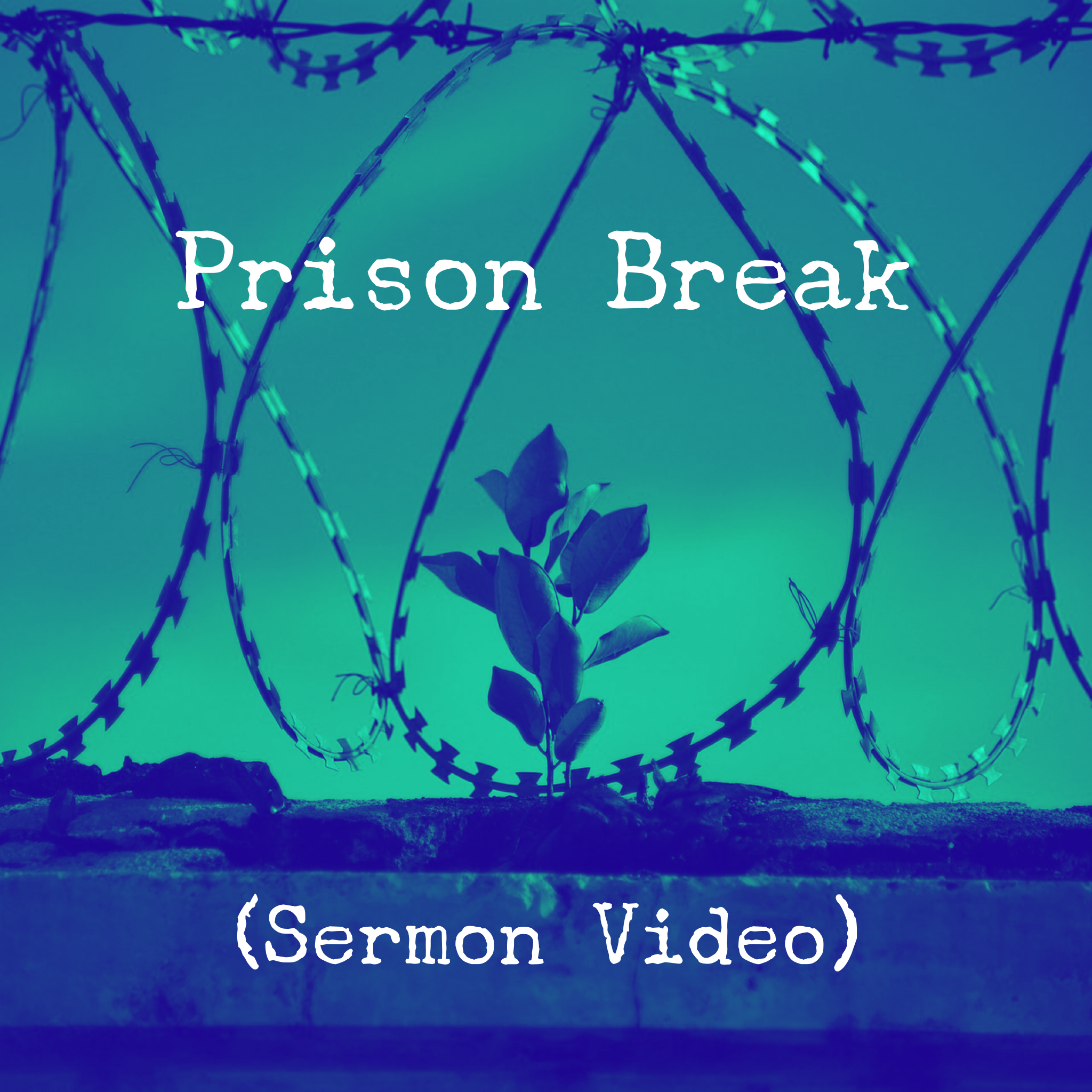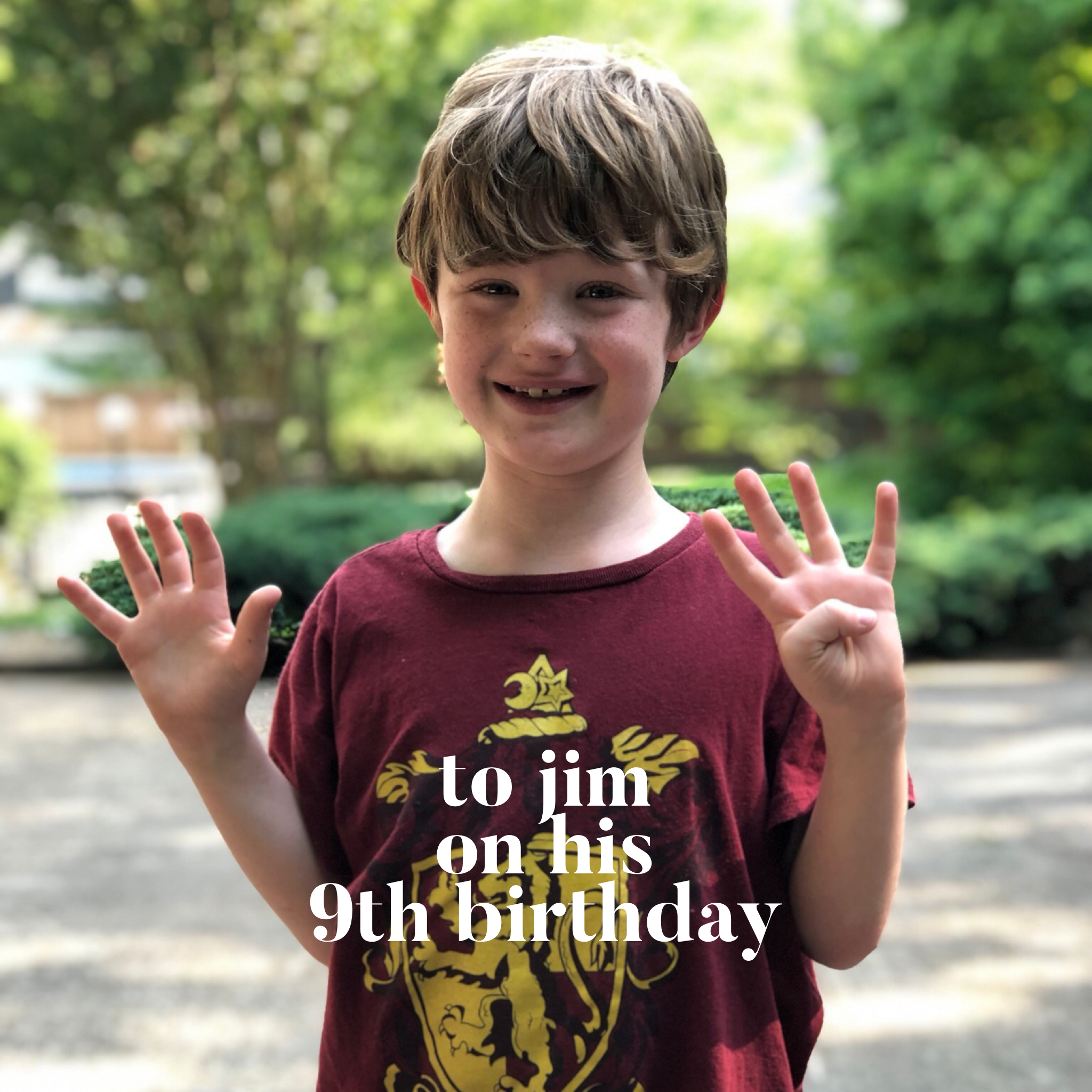Prison Break (Philippians 4:4-9)
The following is my manuscript for the sermon that I preached on Sunday, June 23 at The Bridge service. As always, this is not exactly what I said but it is the gist.
This past week, our middle schoolers did a local missions camp that we’ve come to call Light Up Music City. This is something that Katie Gossage and I threw together in a pinch a few years ago and it has become a cool regular part of our summer. For about half of the day, we serve somewhere in the Nashville area. This year we volunteered at Fall-Hamilton Elementary, Second Harvest, and GraceWorks Ministries out in Franklin. The other half, we’ll do something like canoe the Harpeth or go to Topgolf.
On Tuesday—by popular demand—we went to the Escape Game. For those of you who haven’t been to one of these, you are “locked” in some sort of themed room, you’re given a story like you are spies in a foreign country or you’re astronauts on a Martian space station, and then you have one hour to solve a series of intricate puzzles in order to escape from the room.
That is how I found myself locked into prison with five middle school guys one afternoon this week. I should have known we were in for an experience from two things the Escape Game guy said. First, he told us that Prison Break was the hardest room that they had. Then, he apologized that we weren’t starting on time. They had to clean up a little bit more because “it got a little crazy in there for the last group.” I gave him a quizzical look and he just kind of raised his eyebrows at me and I am still uncertain if I want to know what went down for the group before us. So with the reality that this room was the toughest to escape and the possibility that the prior group went Lord of the Flies on each other, he locked three of us in one cell and three in another and told us that getting out of our respective cells was just the first step of breaking out. Me and five middle school guys need to break out of prison. This, let me remind you, is part of my actual job. I love it, but it is patently absurd sometimes.
There was a lot of chaotic yelling back and forth and wild guessing about whether every minute detail was a clue. Canon and I had a brief conversation about whether a dead cockroach was real and if it was on the floor for a particular purpose. About 15-20 minutes in, with some teamwork and throwing items through the gaps in our barred doors, we finally got the keys to spring us from our dingy prison cells.
As I’m trying to turn the stubborn key, I look up and there is one of my youth on the other side of my barred door bouncing up and down with this intense—some might say psychotic—joy flashing in his eyes. Then I noticed what he was wearing. He had taken the prison jumpsuit which we had used for an earlier clue and—with no thought of where it had been or whether he even should—was now wearing it proudly on his much, much smaller frame. We were still in prison, but he was having the time of his life.
For the last month, we have been journeying through Paul’s letter to the Philippians. Philippians is such a compelling read because it was written from prison yet Paul’s joy and energy is so palpable that it feels like the letter was written a million miles away from a jail cell. Somehow Paul was able to rise above his present circumstances and live as if prison walls weren’t holding him in. We have learned much by looking closely at specific passages throughout this letter.
Today I want us to do something different. Later on in our prison escape, we removed a bunch of books from an office wall and were looking closely for some hint of what to do next. It wasn’t until we backed away a bit that we were able to find what we needed to make our escape. So for this last week in the series, I want us to take a step back to look at the bigger picture of Philippians. How was Paul able to seemingly escape jail while still being locked in?
The question is so pertinent because we all find ourselves in some sort of prison at times. For most of us it is not a literal jail cell. The prisons that we find ourselves in are the points in life where circumstances close in around us—whether it is events beyond our control or perhaps a situation where we are at fault. We feel trapped. We feel like there is nowhere else to go. We don’t feel like we are free to live life as it was meant to be lived. In these times, we need help busting our spirit out of these oppressive situations even if we can’t always change the actual surroundings that make us feel like we are locked up.
So this text where someone in a literal prison is able to embody freedom can be a life-giving resource for us. If you got stuck on a puzzle in the Escape Room, you could press a red button on the wall and a monitor would flash up a clue. Technically you only get three, but they offered up more to us without us asking because I guess they saw that we needed it. The clues didn’t bust us out or unlock any doors, but they did help us forward. So consider Philippians those clues flashing up on the screen when you feel stuck.
We are not going to delve into the entire letter. For example, I am not going to try to wring great meaning out of Paul’s plans to send Timothy and Epaphroditus to Philippi in the future. But I do think those plans are a good place to start with our “clues.” It is worth remembering that by simply making these plans, Paul is demonstrating hope. He plans to send Timothy and Epaphroditus in the future. He plans to hear back from them. He does not believe that his present situation is the end. There is something that lies beyond his cell-centered circumstances.
So perhaps the first thing we can learn from Paul when we face difficult times is that, “This is not the end.” Learn to look past your present circumstances. Even in situations where our mortality is involved, Christians have long hoped that even death cannot have the final word and that we will experience resurrection. Paul believed in something past his prison walls and that was a piece of his freedom.
One of the big overarching themes which is stated implicitly more than explicitly is that you can’t do this alone. This is a letter written to a community and it was to be read as a community. In 1:27, Paul writes “I will know that you are standing firm in one spirit, striving side by side with one mind for faith of the gospel.”
It is very obvious in reading Philippians that the mere thought of this community helped Paul immensely as he was incarcerated. You can’t do this life alone. I couldn’t have done that Escape Room alone. You can’t break out without others. Andy Dufresne couldn’t have escaped Shawshank without Red. Woody and Buzz couldn’t have escaped Sunnyside Daycare without all of the other toys. Whatever prison you find yourself in, you aren’t going to bust out of it yourself. You need others.
Since we are in community, we need to live in such a way that regards one another with honor. Do not be selfish or do anything out of vain conceit, which are prisons in themselves. Look not only to your own interests but the interests of those around you. There is the principle that we hear from the ongoing civil rights movement that none of us are free until all of us are free. Martin Luther King Jr. stated, “We are caught in an inescapable network of mutuality, tied in a single garment of destiny. Whatever affects one directly, affects all indirectly.” Sit with that idea for a second. The world is not just about me. It is not just about you. It’s not even about people who are like us. And I think most of us know that. But acting on that reality is more difficult.
I think Paul knew this tension implicit in his call to seek the good of others. To drive this home, Paul builds to a different song about the humility of Jesus. Most scholars think that this beautiful hymn is not the work of Paul but a pre-existing anthem of the early church. These words paint this beautiful picture of Jesus being someone who had every right to lord over everyone yet instead chooses the path of a servant and Paul says, “Let the same mind be in you that was in Christ Jesus.” We are not only supposed to be in community, we are supposed to be for community; working for each other, serving each other. We don’t get out if we don’t help each other out.
Having the same mind as Christ gets to the crux of another major point of Paul’s and another clue to our own escape: Remember who you really are. One of the things that is so psychologically damaging about prison is that it can strip you of your humanity. Though, it’s not true in all cases, prisoners can become a number. In Toy Story 3—which is basically a prison break movie—the main way that the villainous Lots-o’-Huggin’ Bear tries to break the spirit of the toys is to erase Buzz Lightyear’s memory; to make him forget who he is, to forget his bonds with others, to forget what his purpose is as a toy. That can sound childish, but I think it resonates. You and I can lose a sense of who we are in the midst of whatever prison we find ourselves in.
We think that we are just a failure or a screwup. We get so deep in whatever dark period that we are in that we can’t see past it or remember ourselves. We think that we are locked in this situation forever. The Philippians struggled with a Roman culture that called them to be something other than who they knew they were. Paul reminded them “our citizenship is in heaven” (3:20) so “live your life in a manner worthy of the gospel of Christ Jesus” (1:27). And if living life in such a manner seemed too tall a task, Paul reminded them “for it is God who is at work in you, enabling you both to will and to work for God’s good pleasure” (2:13). You are a citizen of heaven and God is at work in you. Don’t forget who you are. You are not this circumstance. You are not your past or present. You are a creation of God, a child of God. Do not lose yourself.
But the heart of this letter, the key to Paul’s prison break is joy. He lays the foundation by opening his letter rejoicing in the present and the future. True, he is in prison but he believes that God can still bring something good and beautiful out of this dark situation. He closes his letter rejoicing at how the Philippians have helped him in the past and continue to do so in the present. And every exhortation that he writes—to know this is not the end, to live humbly in community, to remember who you are—builds to his encouragement to embrace joy:
Rejoice in the Lord always; again I will say, Rejoice! Let you gentleness be known to everyone. The Lord is near. Do not worry about anything, but in everything by prayer and supplication with thanksgiving let your requests be known to God. And the peace of God which surpasses all understanding, will guard your hearts your minds in Christ Jesus.
Finally, beloved, whatever is true, whatever is honorable, whatever is just, whatever is pure, whatever is pleasing, whatever is commendable, if there is any excellence and if there is anything worthy of praise, think about these things.
I am not going to stand here and act like this is an easy thing to embrace. But if you can, it can make all of the difference in the world. To know that God is near you. To know that God will guard your heart and mind. To have your mind set on the true, the honorable, the just, the pure, the pleasing, the commendable, the excellent, the praiseworthy. If that is on your mind, why wouldn’t you rejoice always? There is no prison that can contain that kind of joy.
Truth be told, it takes a lot to get there. You need to continually reset your mind. You need people to remind you and be there for you. You still might forget. You still might find the walls closing in on you sometimes. A prison break does not come easily, but rejoicing in God is one of the best ways I know to break free and I know that from experience.
Let me close with a story about where all of this added up to a breakthrough of joy. A couple of weeks before I found myself in a faux prison with those five middle school guys, I was co-directing our state CYF camp out at Bethany Hills. It was a great week, the best I’ve had out there. On the next-to-last night of the week, the high school students who were in charge of planning the worship service came up with this great idea of doing interactive stations throughout the rec hall. My co-director Christy Jo and I were assigned to a foot washing station. Earlier in the week, one of our keynoters washed our feet while telling the story of Jesus washing the disciples’ feet. Thus there was beautiful symmetry to us getting to serve our campers in that way. And so for most of the service, the two of us sat on the floor and washed the feet or hands of whomever came.
Towards the end, the people who wanted to come to our station had already come but there was a long line at a station where the Camp Manager Dee Wells would pray over students. And having Dee pray for students was a beautiful idea because her heart is bigger than the Tennessee Valley. So Christy Jo and I were asked to help alleviate the line. We walked across that gym floor illuminated only by Christmas lights and took our place on the floor next to the makeshift PVC pipe booth where Dee was praying with students. So I sat there and waited to pray with students for whatever they needed.
For about 14 years, I did something similar to this at a church camp. It was a more evangelical background and so we had invitations each night at the end of worship services where if students wanted to become a Christian or were struggling with something, they came down and prayed with a staff member before going to talk with someone from their church. I did this maybe 15 to 20 nights a summer for almost a decade and a half. They are some of my most vivid memories from those years because I do not know what to pray…ever. I know I’m a minister, but it still always stops me cold in my tracks. In this context, I would just throw my heart and words up into the air in hopes that God would fill the student with peace or hope or challenge them in some way. Sometimes it didn’t work. Sometimes it really felt like Paul’s words were true: that the Lord was near.
So I was anxious sitting on that dusty rec hall floor at Bethany Hills because I am not always sure how to talk about God in a context different from which I grew up. I do it as honestly as I can, but I also constantly worry about whether I am making sense or not. I run what I say through multiple filters and sometimes feel like I am not remembering who I am. And when you sit with a teenager who wants to be prayed for, you can’t do that. You need to be honest and vulnerable in prayer. You can’t run it through a filter. You can’t lock yourself up with worry over saying the wrong thing.
The first student sat down with me and I asked what they needed. And I remembered this beautiful community that we were experiencing at Bethany Hills, I remembered that honoring this student was more important than trying to impress them with my words, and I remembered who I am and who I am in God. And I just threw those words up in the air in hope. And something clicked inside of me; like a key unlocking a prison door. It felt familiar. It felt like joy. It felt like God was near. It felt like God was listening. It felt true and good and beautiful. It was just two of us humbly talking to God. As I continued to pray for students that night, it was one of the most freeing and joyful experiences that I have had in some time. I felt the heart of Philippians beating in my chest. And it’s my prayer that you experience something like that too.








